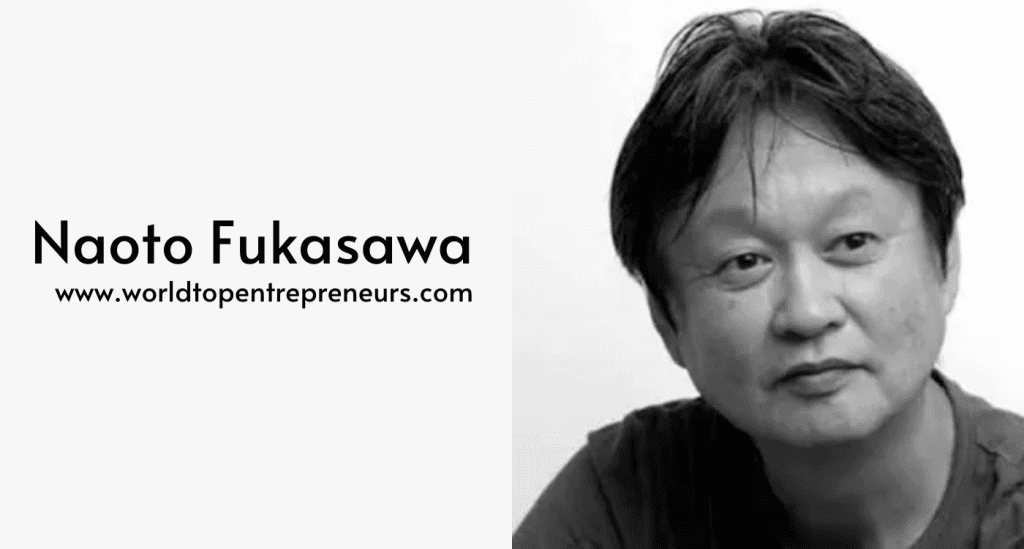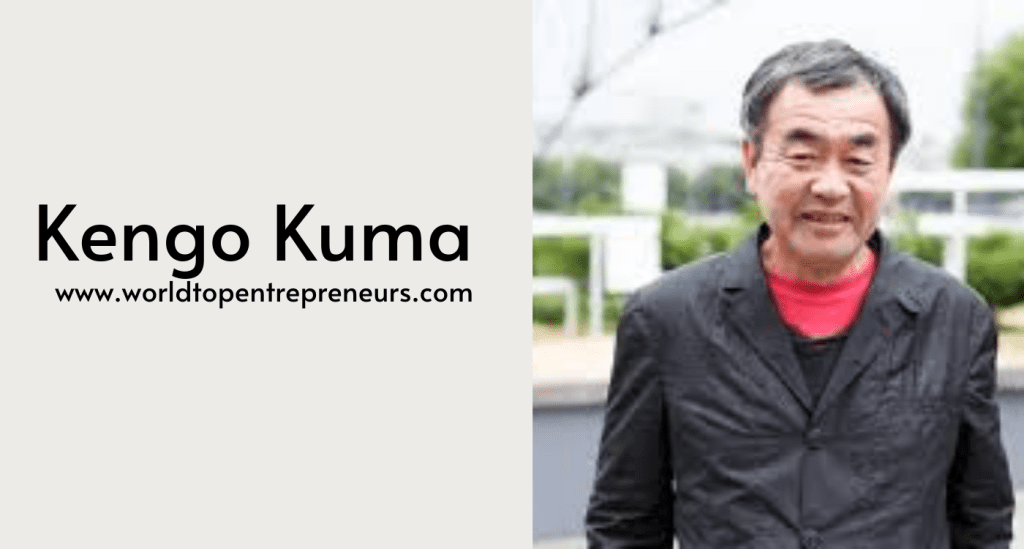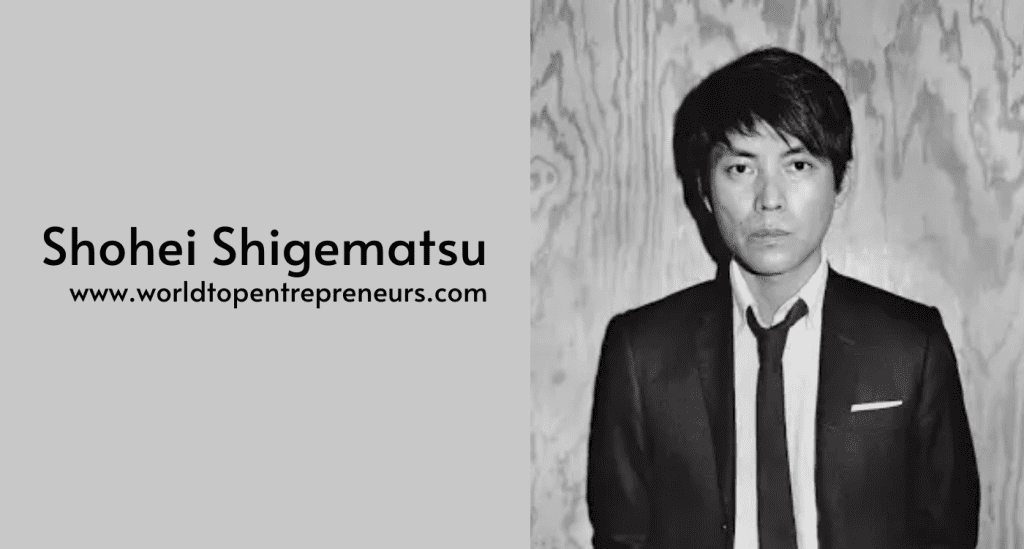In the world of design, where trends fluctuate and innovation drives competition, Naoto Fukasawa stands as a paragon of elegance and minimalism. As the founder of Naoto Fukasawa Design, he has revolutionized how we perceive and interact with everyday objects. His approach to design is characterized by a profound understanding of simplicity and functionality, creating products that are both aesthetically pleasing and deeply intuitive.
Early Life and Influences
Naoto Fukasawa was born on June 5, 1956, in Yamanashi Prefecture, Japan. Growing up in a culture renowned for its meticulous craftsmanship and appreciation for subtle beauty, Fukasawa was immersed in an environment that celebrated design and aesthetics. From a young age, he was exposed to traditional Japanese art and design principles, which would later inform his approach to modern design.
Fukasawa’s academic journey began at Tama Art University in Tokyo, where he pursued a degree in Industrial Design. This period was crucial in shaping his design philosophy. The university’s curriculum emphasized a balance between functionality and form, a principle that Fukasawa would embrace throughout his career. His education provided him with a solid foundation in design theory, but it was his exposure to Japanese minimalism and its influence on contemporary design that truly sparked his passion.
After graduating, Fukasawa embarked on a career that would see him work in various roles across the design industry. He started as a designer at Seiko, where he worked on creating timepieces that combined precision with aesthetic appeal. This experience was instrumental in honing his skills and understanding the delicate balance between form and function.
Founding Naoto Fukasawa Design
In 2003, Naoto Fukasawa took a significant step in his career by founding Naoto Fukasawa Design. This venture allowed him to fully realize his vision of creating designs that seamlessly blend simplicity with functionality. His design philosophy was deeply rooted in the idea that objects should be intuitive and harmonize with the user’s experience, rather than simply being visually striking.
The early years of Naoto Fukasawa Design were marked by a commitment to innovation and a focus on creating products that could transform everyday experiences. Fukasawa’s approach was to strip away unnecessary elements, leaving behind designs that were pure and purposeful. This minimalist approach resonated with both clients and consumers, setting a new standard for product design.
One of the key aspects of Fukasawa’s design philosophy is the concept of “without thought.” This principle revolves around creating products so intuitive that users can operate them without having to consciously think about their functionality. This idea stems from Fukasawa’s belief that good design should feel natural and effortless, enhancing the user’s experience without drawing attention to itself.
Innovations and Iconic Designs
Naoto Fukasawa’s body of work is characterized by a series of innovative and iconic designs that have had a profound impact on various industries. His designs often reflect a deep understanding of human behavior and a keen eye for detail, resulting in products that are both functional and beautiful.
One of Fukasawa’s most notable creations is the “Wall” series of air conditioners for the Japanese company, Muji. This design exemplifies his minimalist approach, featuring a sleek, unobtrusive form that blends seamlessly into any environment. The Wall air conditioner’s simplicity is not just about aesthetics; it also reflects Fukasawa’s understanding of how technology should integrate smoothly into daily life.
Another significant contribution by Fukasawa is the “O” chair for the Italian furniture brand, Boffi. The chair’s design is a testament to Fukasawa’s ability to create functional art. Its elegant, fluid lines and ergonomic shape provide comfort while maintaining a sense of understated sophistication. The “O” chair is a perfect example of how Fukasawa’s designs transcend traditional boundaries, merging art with everyday functionality.
Fukasawa’s collaboration with the Japanese electronics company, Sony, also resulted in groundbreaking designs. The “Xperia” line of smartphones, developed under his guidance, features a sleek, minimalist aesthetic that emphasizes usability and simplicity. The design of the Xperia smartphones reflects Fukasawa’s belief that technology should enhance human interaction rather than overwhelm it with complexity.
Global Recognition and Influence
Naoto Fukasawa’s work has garnered international acclaim, establishing him as a leading figure in the global design community. His designs have been exhibited in prestigious institutions such as the Museum of Modern Art (MoMA) in New York and the Victoria and Albert Museum in London. These exhibitions have cemented Fukasawa’s reputation as a pioneer of minimalist design and a master of intuitive functionality.
In addition to his contributions to product design, Fukasawa has been involved in various design-related activities and initiatives. He has served as a jury member for numerous design awards and has been a speaker at international design conferences. His insights and perspectives on design have influenced both emerging designers and established professionals, contributing to the ongoing evolution of the field.
Fukasawa’s impact extends beyond individual products; his design philosophy has inspired a new generation of designers to embrace simplicity and focus on creating meaningful user experiences. His approach challenges conventional design practices and encourages designers to rethink how they approach their work, emphasizing the importance of understanding user needs and creating designs that seamlessly integrate into everyday life.
Challenges and Reflections
Despite his success, Naoto Fukasawa’s journey has not been without challenges. The design industry is highly competitive, and maintaining relevance in a rapidly evolving field requires continuous innovation and adaptation. Fukasawa’s ability to stay at the forefront of design trends while remaining true to his minimalist philosophy is a testament to his skill and dedication.
One of the challenges Fukasawa has faced is the balancing act between maintaining his design principles and adapting to the changing demands of the market. As consumer preferences evolve and new technologies emerge, designers must navigate a landscape that is constantly shifting. Fukasawa’s approach has been to remain flexible and open to new ideas while staying true to the core principles of simplicity and functionality that define his work.
Another challenge is the need to address the environmental impact of design. As awareness of environmental issues grows, designers are increasingly called upon to create products that are not only aesthetically pleasing and functional but also sustainable. Fukasawa has acknowledged this challenge and has made efforts to incorporate sustainable practices into his design process. This includes using eco-friendly materials and designing products that are built to last, reflecting his commitment to creating designs that are both beautiful and responsible.
Personal Philosophy and Legacy
Naoto Fukasawa’s personal philosophy is deeply intertwined with his approach to design. He believes that design should be a reflection of human experience and should enhance the way people interact with the world. This philosophy is evident in his work, which consistently prioritizes simplicity, functionality, and a deep understanding of user needs.
One of Fukasawa’s core beliefs is that design should be invisible. By this, he means that the best designs are those that seamlessly integrate into users’ lives without drawing attention to themselves. This approach aligns with his idea of “without thought,” where products are so intuitive that they become a natural extension of the user’s experience.
Fukasawa’s legacy is one of redefining modern design through the lens of simplicity and user-centered thinking. His work has influenced countless designers and continues to inspire those who seek to create meaningful and impactful designs. His ability to distill complex ideas into elegant and functional solutions is a testament to his skill and vision.
As we look to the future of design, Naoto Fukasawa’s contributions serve as a reminder of the power of simplicity and the importance of understanding the human experience. His work challenges us to rethink how we approach design, encouraging us to create products that enhance our lives in subtle yet profound ways.
Conclusion
Naoto Fukasawa’s journey as the founder of Naoto Fukasawa Design is a story of vision, innovation, and transformative impact. His commitment to simplicity, functionality, and user experience has redefined modern design and set new standards for the industry. Through his groundbreaking work, Fukasawa has demonstrated that great design is not just about aesthetics but about creating products that resonate with people on a deeper level.
As we reflect on Naoto Fukasawa’s achievements, we are reminded of the profound impact that thoughtful design can have on our lives. His legacy continues to inspire designers around the world to create products that are not only beautiful but also meaningful and intuitive. In a world where design often seeks to dazzle and overwhelm, Fukasawa’s approach serves as a beacon of clarity and elegance, reminding us that sometimes, the simplest solutions are the most profound.





















